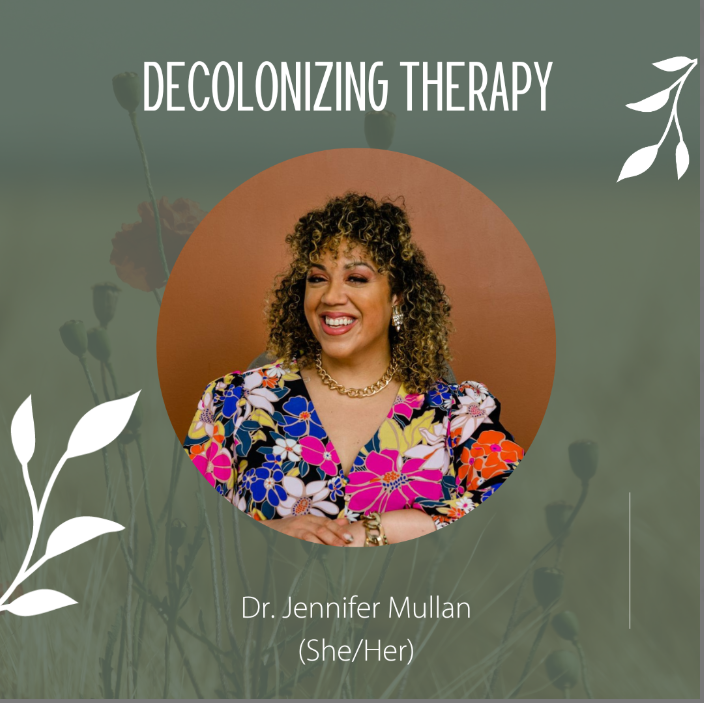Reclaiming Autumn: Creating New Rituals for Grounding, Reflection, and Inner Safety
For many of us, fall isn’t pumpkin spice and cozy sweaters—it’s a season that stirs up grief, old memories, and an unsettling sense of loss. As the light fades and the world slows down, our nervous systems often speed up. For BIPOC and LGBTQIA+ folks, the changing season can feel less like a fresh start and more like a reminder of what we’ve had to endure.
But what if we could change that narrative? What if autumn became a time of intentional slowing down, soul nourishment, and inner safety—especially for those of us carrying generational trauma and daily stress?
This fall, let’s reclaim autumn as a time of healing and grounding. With trauma-informed rituals, mindfulness practices, and a little support, we can move from merely surviving the season to creating space for rest, reflection, and renewal.
Why Fall Can Feel Triggering for Trauma Survivors
For many trauma survivors, fall brings emotional undercurrents we can’t always name:
- Shorter days and less sunlight can trigger Seasonal Affective Disorder (SAD)
- Fall often marks the return of stress—back-to-school transitions, holidays approaching, financial pressure
- Our bodies remember anniversaries of loss, even when our minds don’t
- Cold weather and longer nights can increase feelings of isolation or depression
The National Institutes of Health confirms that changes in season impact circadian rhythms and can intensify symptoms for those with anxiety, PTSD, and mood disorders.
What Makes Reclaiming Autumn Important for BIPOC & LGBTQIA+ Communities
In Black, Brown, and queer communities, trauma is often layered—personal, historical, systemic. The body holds all of it. And for many of us, we’ve been taught to stay strong, keep going, push through. But the wisdom of autumn invites a different way:
- Slowing down instead of speeding up
- Letting go of what no longer serves, just as trees release their leaves
- Turning inward to reconnect with self, community, and ancestral roots
Grounding Rituals Rooted in Rest and Reflection
You don’t need to be a spiritual guru to create healing rituals. Grounding rituals are simply intentional practices that help your nervous system feel safe, present, and supported. These are especially meaningful for those healing from racialized, queer, or generational trauma.
1. Breathwork + Cozy Lighting Ritual (10 min)
As the days darken, light becomes sacred. Light a soft lamp or candle. Sit or lie down, and breathe in for 4, hold for 4, out for 6. Do 3–5 rounds, gently telling your body: “You’re safe now.”
2. Sound Healing or Vibration Therapy
Sound is vibration, and trauma is stored in the body. Sound therapy activates the parasympathetic nervous system, easing tension and emotional heaviness. Use singing bowls, tuning forks, or even low-volume binaural beats (freely available via Insight Timer).
3. Seasonal Altars + Ancestral Reflection
Fall is an ideal time to honor those who came before you. Create a small altar with items that remind you of strength, resilience, and family (photos, leaves, a stone, a journal). Sit near it weekly to reflect: “What am I ready to release? What strength lives in me?”
4. The “Parts Check-In” (IFS-Inspired)
Each week, ask: “What part of me needs care today?” Maybe a part of you is tired, resentful, lonely. Listen. Offer compassion. IFS reminds us we are not broken—we are made of many wise, protective parts.
Case Example: “Renee’s” Autumn Healing Practice
(Name changed for privacy.) Renee, a 40-year-old client in South End Charlotte, came into therapy each October feeling anxious and exhausted. She thought it was just “busy season.” But through Brainspotting and IFS work, she realized fall reminded her nervous system of unresolved childhood grief around the constant moving and attending a new school every year as a child. A part of her felt like she was always starting over. Together, we built a new fall response: When that part of her was active should would listen internally with nonjudgmental curiosity, she would make time to listen and write in her journal to help this part of her feel seen, heard, and valued. She would extend compassion to the part of her that held fears and concerns. This part of her was allowed to express itself when it has previously been silenced.
Why Slowing Down Is Especially Hard for High-Achieving Black Women
In many Black households, fall meant gearing up—not winding down. School, work, church programs, holiday hosting. There was little space to rest. That pattern often follows us into adulthood.
Dr. Joy DeGruy’s work on Post-Traumatic Slave Syndrome highlights how generational survival strategies—like overachieving, perfectionism, or emotional suppression—get passed down. Mindfulness and IFS help us lovingly interrupt these patterns.
How to Build a Personal Ritual for Fall Grounding
Choose one or two sensory-based practices you can do weekly. Keep it simple, repeatable, and rooted in kindness:
- Pick a time (Saturday morning, weekday night, lunch break)
- Choose a ritual container (light, sound, aroma, nature, breath)
- Add a reflective practice (journaling, drawing, praying, dancing)
- End with a releasing phrase: “I honor what I’ve held. I release what’s no longer mine.”
Helpful Tools for Creating Rituals at Home
- Mindfulness Basics – NCCIH
- Free Sound Meditations – Insight Timer
- Therapy for Black Girls – great podcast episodes on seasonal transitions
Reframing the Season: Autumn Is a Threshold
In many Indigenous and African spiritual traditions, fall is seen as a sacred threshold—a time when the veil between the physical and spiritual worlds grows thinner. Whether or not you connect to these roots, the energy of reflection and release is universal.
This season can be a time to:
- Reconnect with ancestors or lineage
- Honor grief you’ve been carrying
- Set new boundaries before the holidays
- Build a relationship with your “inner system” through IFS or meditation
What Happens When We Ritualize Healing
When we return to something regularly—with presence and intention—it becomes sacred. Whether it’s a Sunday bath with candles, a monthly “unplug day,” or weekly check-ins with your therapist, ritual creates rhythm in your nervous system.
And rhythm is where healing lives.
Let This Fall Be Different
This year, let fall be more than a trigger. Let it be an invitation.
At Mended Counseling in Charlotte, we’re here to help you build grounding practices, reconnect with your body, and learn tools for calming the chaos inside. Through trauma-informed therapy like IFS, Brainspotting, mindfulness, and soon—sound healing in our meditation room—you can reclaim the season and find rest that nourishes you deeply.
👉 Book your consultation today and create a ritual of your own this fall.




